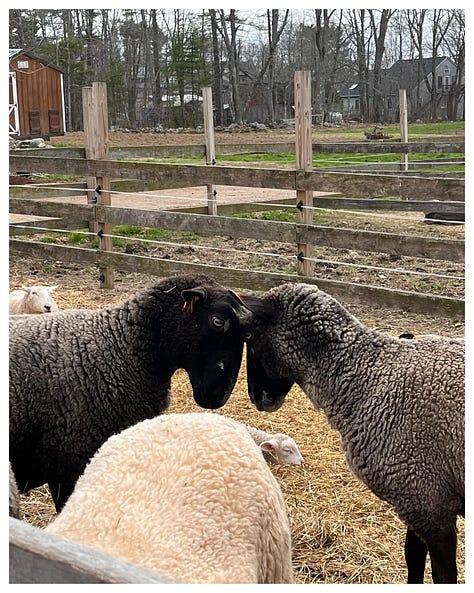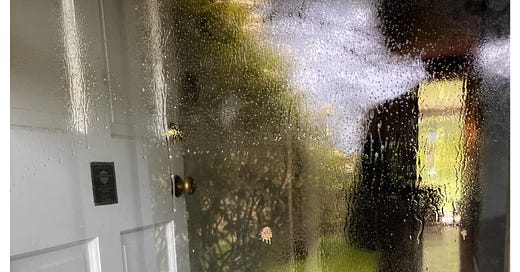Do I contradict myself?
Very well then I contradict myself,
(I am large, I contain multitudes.)~ Walt Whitman, from Song of Myself :: read more
Friday greetings,
Containing multitudes was on my mind this past week, so I wrote 11 things:
1. I have a recurring dream about being in a house – not necessarily my own – and suddenly discovering rooms, sometimes a whole wing, that I hadn’t known about before. I’ve had many versions of this dream over the course of decades, and I can still picture so many of the details. The feeling is always: oh wow.
2. I am considering changing my name to Zahava. I love that it contains the word "ahava," which means love. I love that it means "golden." I love that it contains the sound of "Chava," the Hebrew name I already have (though not legally). I love how the name itself is like a nesting doll. And I love how gorgeously sensuous and feminine and strong and solid and beautiful it feels when I say it. It feels like my favorite light and rich deep colors and jewels in my mouth. I am sitting with this in a generous and spacious way, with no timeline or hurry. It's fun and intriguing to consider. This morning, I stopped at a Starbucks about half hour south of my house before a dermatologist appointment, and just to see how it felt, I said “Zahava” when the barista asked me for a name for my drink, then smiled to myself when she repeated it back.
3. I have always shared my writing but that doesn’t mean I haven’t been afraid.
4. I want my kids to know that I celebrate them containing multitudes. What better way to do this than to share my multitudes.
5. I discovered a new-to-me poet this week. I looked at her Facebook profile and saw a post wishing her son a happy 16th birthday, with an adorable photo of him as a toddler. The post was a few years old. Curious to see him now, I Googled his name. I was stunned to read an article about him in the past tense. He died by suicide. This woman's poetry is so beautiful and grief-laden; I had been drawn to it without understanding why. Then I saw this and my heart hurt.
6. I am learning how to communicate more directly and clearly. It feels really good. Like growing up. This, like all growing things, is iterative. A leap forward, a plateau, a loop backwards, a spiral, an unfurling.
7. A cherished client told me she is sometimes taken aback by a certain bluntness in my writing, and how surprising it is sometimes since I am not that way in person. I knew exactly what she meant. We had an interesting conversation about the places we can access only through writing, and how one is no more or less authentic than the other.
8. It reminded me of a famous writer I know to be take-no-prisoners on the page, who I've heard has a quiet, almost meek, disposition in person. (We contain multitudes.)
9. I read the poem The Art of Disappearing by Naomi Shihab Nye and immediately thought about certain writers in my life, past and present. What a wonderful poem, especially for introverts.
10. Hinei ma tov – how good it is for us as brothers, sisters, and siblings to sit together. My solidarity strengthens daily.
11. So much beauty, so much beauty, so much life through these glass doors, indistinguishable from the decay that came before and will come again – the falling down wooden fence, the tender reds and greens in the woods, the crisp spring light, riotous tulips in strangers' yards. I smile as I run by.
Shabbat Shalom and love,
Jena
Join me and Miv in July – in person!
Friday, July 14 (4:30pm) to Sunday, July 16 (noon), Amherst, MA
Limited to 10 participants
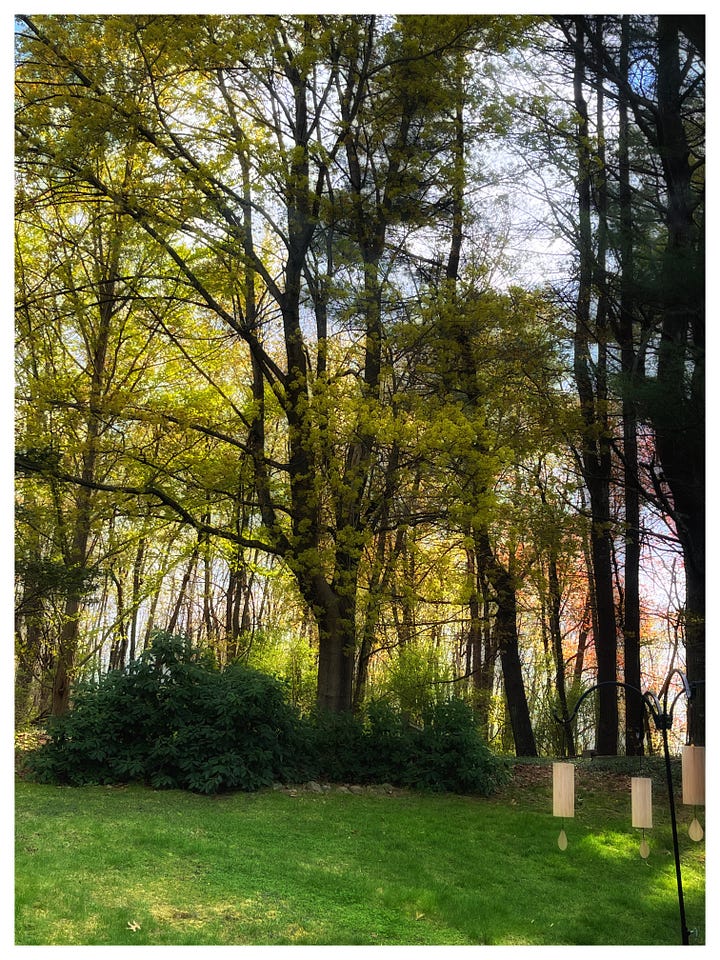

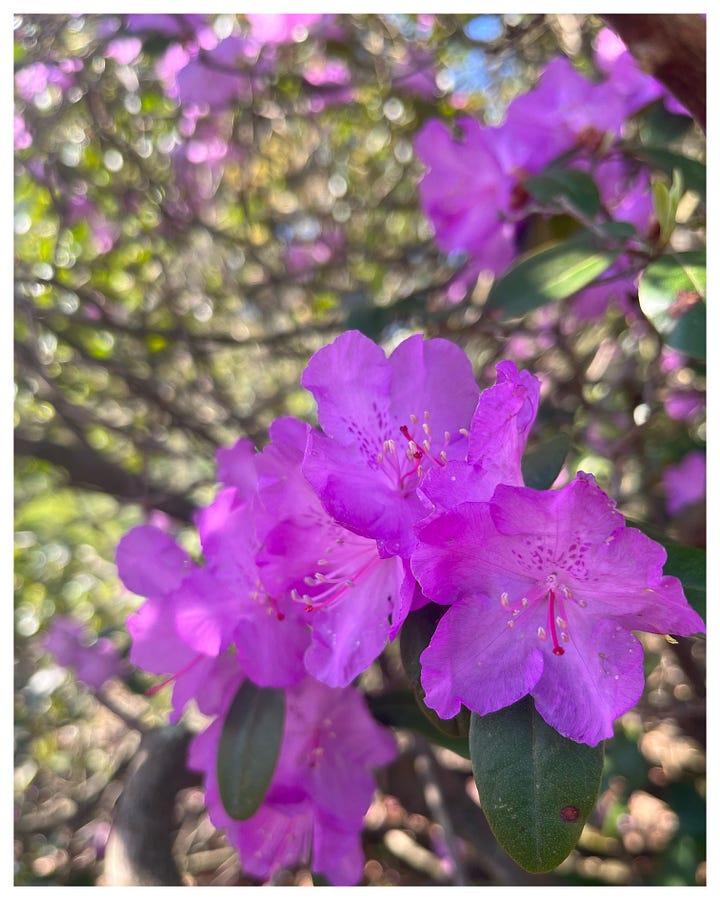
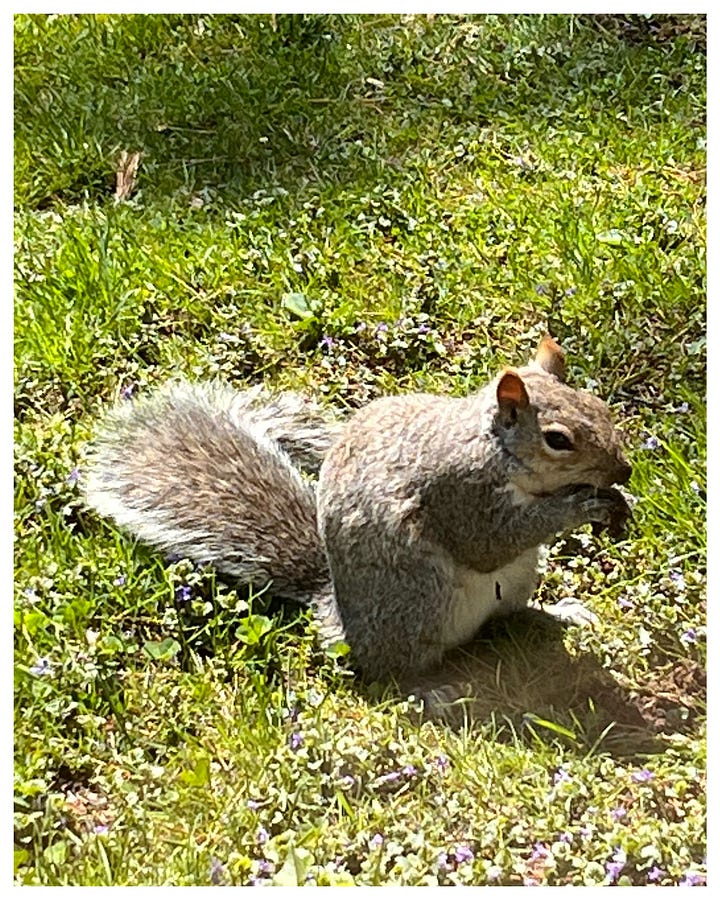
This relaxed retreat will take place in Amherst, Massachusetts. In my backyard under a tent for shade, surrounded by trees and birds, squirrels and chipmunks, we’ll have prompted writing time, guided meditations (sitting and walking) led by my dear friend, Miv London, delicious food, and kind company in a beautiful place. All welcome.
Writing as Advocacy & Activism
Hey hey! My essay, Love the Child You Have, made the WBUR Sunday newsletter "Must Reads" list last weekend. Read it here.
"This week in Cognoscenti, writers helped us think about the world in a new way. They looked deeply into some of the stories we tell ourselves — the practices we follow — and asked: Does it need to be this way? What will we lose if we don’t change?"
~ Kathleen Burge, Cognoscenti Editor
In related news, I attended a local School Committee meeting Wednesday evening and gave the following public comment. Several others also offered strong and moving public comments, and there was news coverage of the meeting in yesterday’s Daily Hampshire Gazette. We'll see what happens next; my hope is that the committee will be swift in responding to these allegations. We cannot be quiet or complacent – here in Amherst, or anywhere in the country. Our kids need us. We need each other.
* * * * *
My name is Jena Schwartz. I am a product of Amherst public schools, a parent of a current ARHS junior, and an Amherst resident.
Thirty five years ago, I walked the halls of the middle school. I had no idea at the time that a couple decades later, I would come out. But I can tell you this: had I been consciously questioning or exploring my sexual orientation at the time, I very well might have chosen to speak with a school counselor rather than my parents or friends. The idea that I might have been met with anything but curiosity and kindness, much less a clearly homophobic agenda, is appalling.
But it is not 1988. It's 2023. And exactly four years ago, in April 2019, Governor Baker signed into law HR 140, banning conversion therapy in Massachusetts. The Human Rights Campaign states: "Such practices have been rejected by every mainstream medical and mental health organization for decades, but due to continuing discrimination and societal bias against LGBTQ people, some practitioners continue to conduct conversion therapy. Minors are especially vulnerable, and conversion therapy can lead to depression, anxiety, drug use, homelessness, and suicide."
While technically, conversion therapy is a whole program, not just an individual being told not to be gay or trans, any instance of using religion, prayer, or other forms of coercion and guilt when speaking with a young person who is searching is certainly on the same continuum. Such approaches are related and abusive – and have absolutely no place in our schools. Any counseling tactics employing religion are in direct violation of separation of church and state.
The counselors in question need to be removed from their positions immediately. Further, the fact that these practices have occurred inside our schools, in offices meant to be safe havens for our kids, needs to be addressed as a community. I would like to see both swift action taken vis-a-vis the counselors and just as importantly, a public address to the entire ARPS community from the principals and superintendent condemning such practices and affirming that no such thing will be tolerated in our schools from any teachers or staff.
I have heard from parents that this is not the first time such reports have surfaced. Every discouraging conversation with a vulnerable teen leaves unseen marks on their psyches and increases their risk for self-harm, addiction, isolation, and suicidality.
Above and beyond the illegality of these actions, there are not sufficient words for how seriously we need to be taking this as a community.
Thank you,
Jena Schwartz
Amherst, MA
* * * * * *
In yet more related news, here is a fun comment from a reader:
"Jenna [sic] Schwartz greatly oversimplifies dynamics between straight parents and LGBTQ+ kids in this piece, which is a disservice to all concerned. There’s not much point dipping a toe in the topic and taking a stance as the feelings police. If you’re going there, then go and do some real research and writing."
And my response:
"Thank you so much for reading. There is tremendous research behind the broad strokes of my essay, which is in not intended to be comprehensive or quantitative. Rather, it is a deeply personal account of how the 'loss' narrative impacts our kids, and a call not to police anyone's feelings but to encourage parents to reflect on the roots of those feelings and whether they are in our kids' best interest.
On a related note, here is an excerpt from A Practitioner’s Resource Guide: Helping Families to Support Their LGBT Children from SAMSHA:
'Research shows that high, moderate, and low rejection are related to dramatically varying levels of risk. For example, LGBT youth from highly rejecting families were 8.4 times more likely to report having attempted suicide at least once by young adulthood, while those from families that were moderately rejecting were twice as likely to attempt suicide (compared with peers who reported no or low levels of specific family rejecting behaviors) (Ryan et al., 2009). Similarly, nearly all young adults who reported high levels of family acceptance believed they could have a good life as an LGBT young adult, compared with only about 1 in 3 of their peers who reported no acceptance from their family or caregiver during adolescence (Ryan, 2009). Perceptions of the future are very important for self-care, for health promotion, for decreasing risk-taking, and for career and personal aspirations.'"
(Just between us: I want to go on record here saying I resisted being snarky and signing my comment, "Jena, with one 'n'"!)
Recommended Watching
To further contextualize the above pieces, I highly recommend watching this 23-minute video.
Bagels, Belief & Belonging: June 15-July 20
Six Thursdays, 1:00-3:00pm EST (Zoom)
Limited to 8 participants
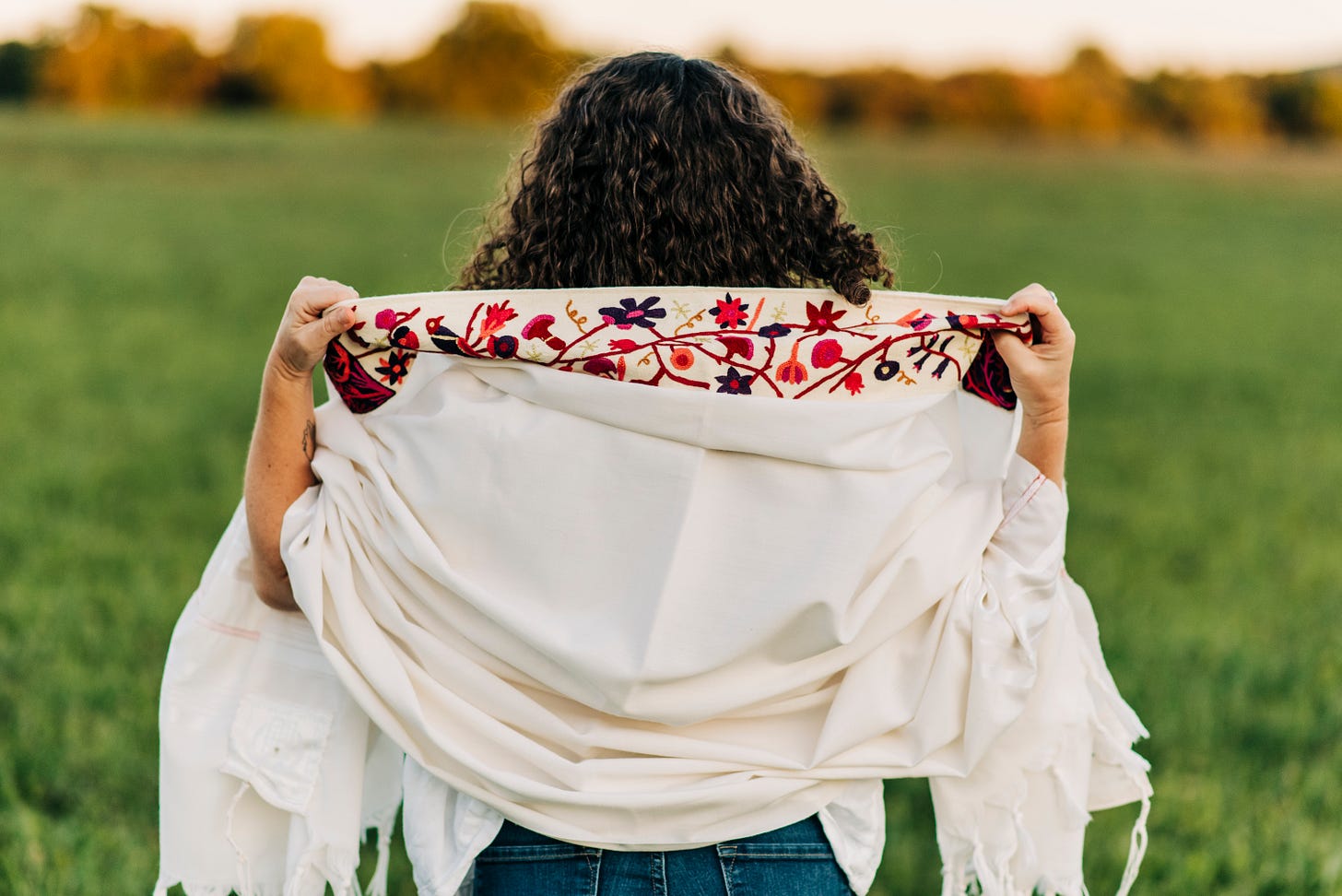
This week, I had a coaching session with someone who is exploring conversion. Our conversation took me back to so many moments along my own Jewish journey. Like the time I was so surprised when a rabbi told me he wasn't a particularly spiritual guy. Or the Judaism & social justice conference I attended as a college senior, only to end up in tears because I felt so "other," knowing none of the songs or prayers that it seemed everyone else knew. Or how I love that at my synagogue, we have a table of "greeters" so that when you enter the building for an event or service, someone is standing there to say, hello, welcome (with pronoun buttons, to boot). Or how as with absolutely anything, there will be people you don't click with or even like, and how it can take time and so much trial and error to begin to find that sense of belonging, and even then it might morph and ebb and flow and shift, as all things do. Whatever your Jewish (or Jew-ish, or Jew-curious) journey has been up to this point, there is a seat for you at this (remote) table. Bring your own bagels!
An exploration of our Jewish journeys, identities, questions, and longings, this group will provide participants an opportunity to reflect through writing and discussion in a Jewish context.
Each week will have a theme and a writing prompt. Participants can expect to spend 20 minutes of each session writing, followed by sharing, organic discussion, and takeaways for future exploration.
Last Word
